Four use Cases, one path towards Democracy
24, November, 2023
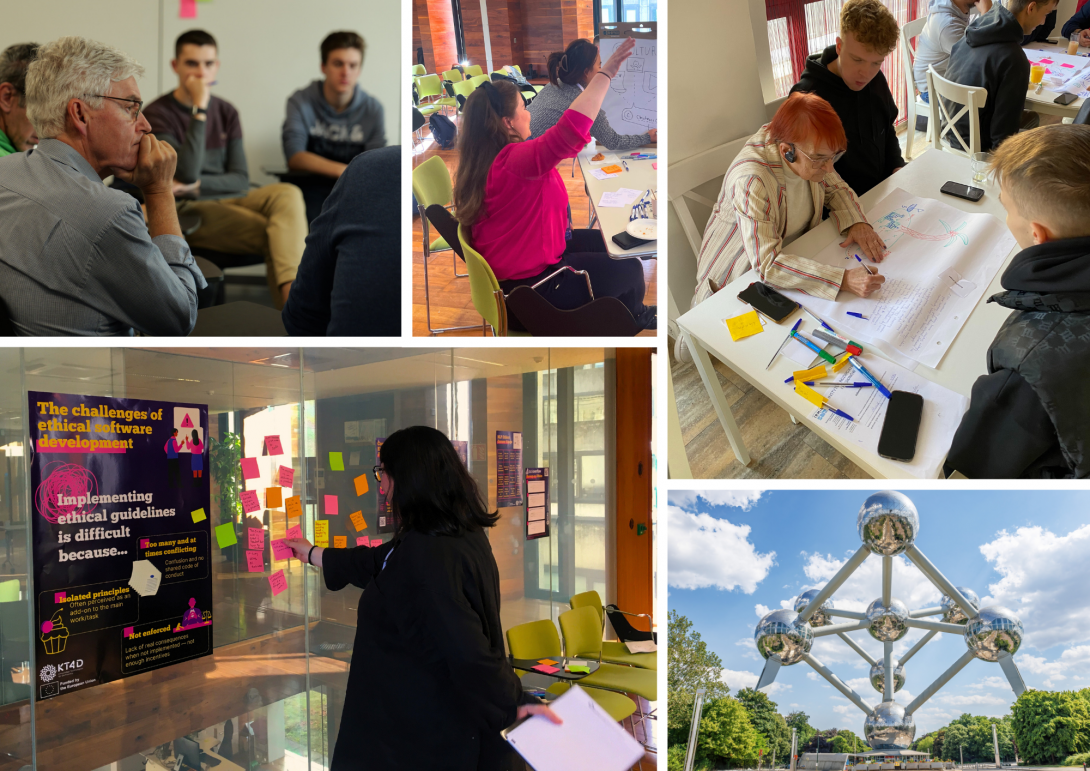
Our Use Cases are at the heart of the KT4D's project. These Use Cases recently held their first workshops in four different locations across Europe. The Dublin workshop focused on "Ethics in Software Design," Warsaw explored "Civic Participation and Knowledge Technologies," Brussels delved into the "Democratic Governance of AI in Europe," and Madrid centered on "Co-Creating Digital Democracy."
Dublin Use case
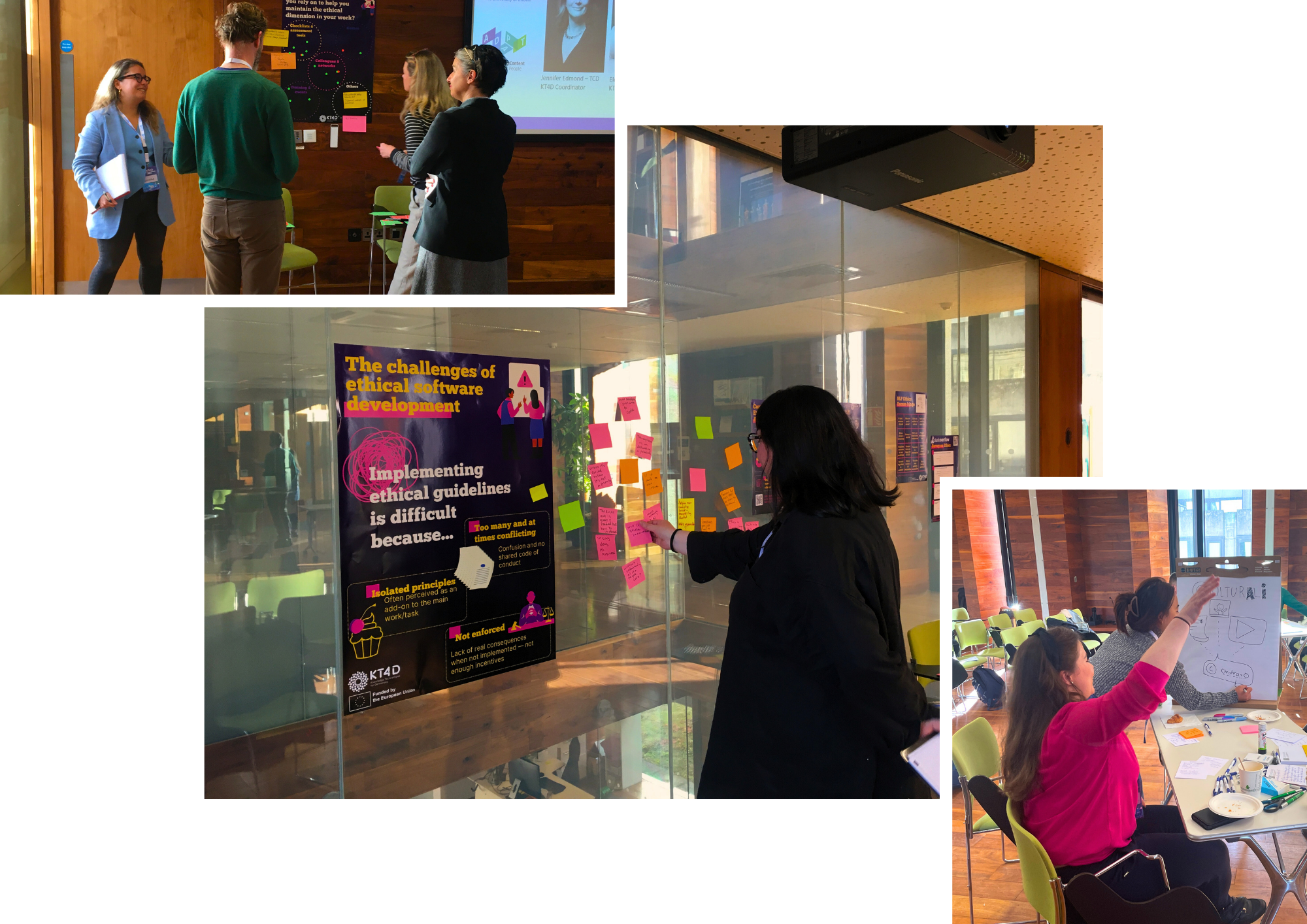
On October 27, 2023, KT4D held the Dublin Use Case workshop at Trinity College Dublin, which focused on Ethics in Software Design.
The Dublin Use Case of KT4D targets AI and Big Data developers from academia and industry with three workshops. The inaugural workshop was titled "Re-Imagining Ethical AI" and took place on October 27, sought to gather academics, industry, software developers and individuals overseeing software development, such as industry CTOs, investment firms, and agencies. The focus of the discussion was to explore the issues presented by ethical AI development and the incompleteness of today’s approaches.
All participants expressed a strong intention to account for the different cultures and identities of those using their tools, despite the challenges of Ethical Software Development in both academia and industry. After pointing out the ethical challenges they are confronted with everyday from a professional and social point of view, the participants actively discussed new viable solutions and approaches. Tools that allow taking into consideration also the cultural dimension of the software.
The workshop finally ended with a co-creation session where, as its title suggested, Ethical software design was re-imagined. The participants were invited to think in groups of tools that could be helpful for them and their colleagues in addressing ethical issues related to software development.
The final co-creative session has provided useful insights into the gaps in Ethical AI within the context of the Democratic process and civic participation. The results bring a significant contribution to the work of KT4D in trying to bridge society and technology.
Warsaw Use Case
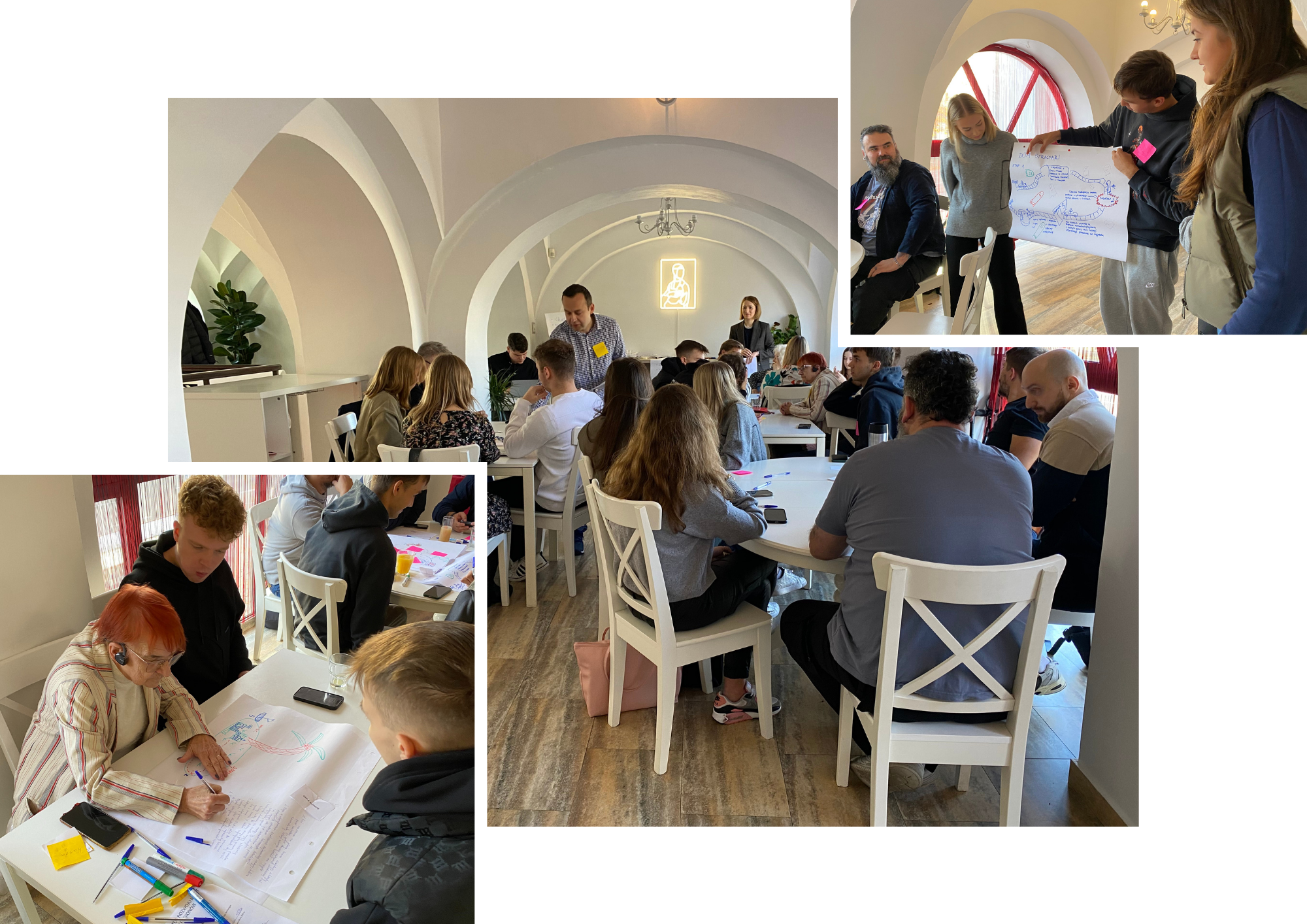
On November 9, 2023, KT4D held the second study on Use Case 3 in Warsaw.
The Use Case study, entitled "Advancing the State of the Art: Civic Participation and Knowledge Technologies," was conducted by a Polish research team affiliated with the Institute of Urban and Regional Development.
Participants in the study were intentionally drawn from different social groups. They represented the unemployed, students, economically active, and seniors. Particular emphasis during the session was given to those groups vulnerable to social exclusion. The study’s main goal was to deepen our understanding of how citizens perceive modern knowledge technologies and how they think that this can influence the democratic process.
The characteristic of variety within the groups has been crucial, it was meant to truly represent the variety of societies, where everyone, based on their environment, is faced with different challenges. Participants could dialogue with other individuals and uncover new points of view. Only by having these kinds of exchanges can one learn a new perspective and build together solutions for everyone.
The session portrayed civil participation and has been of great importance for the KT4D project, giving new insights and suggestions on how to build more participative democracies with the use of knowledge technologies.
Brussels Use Case
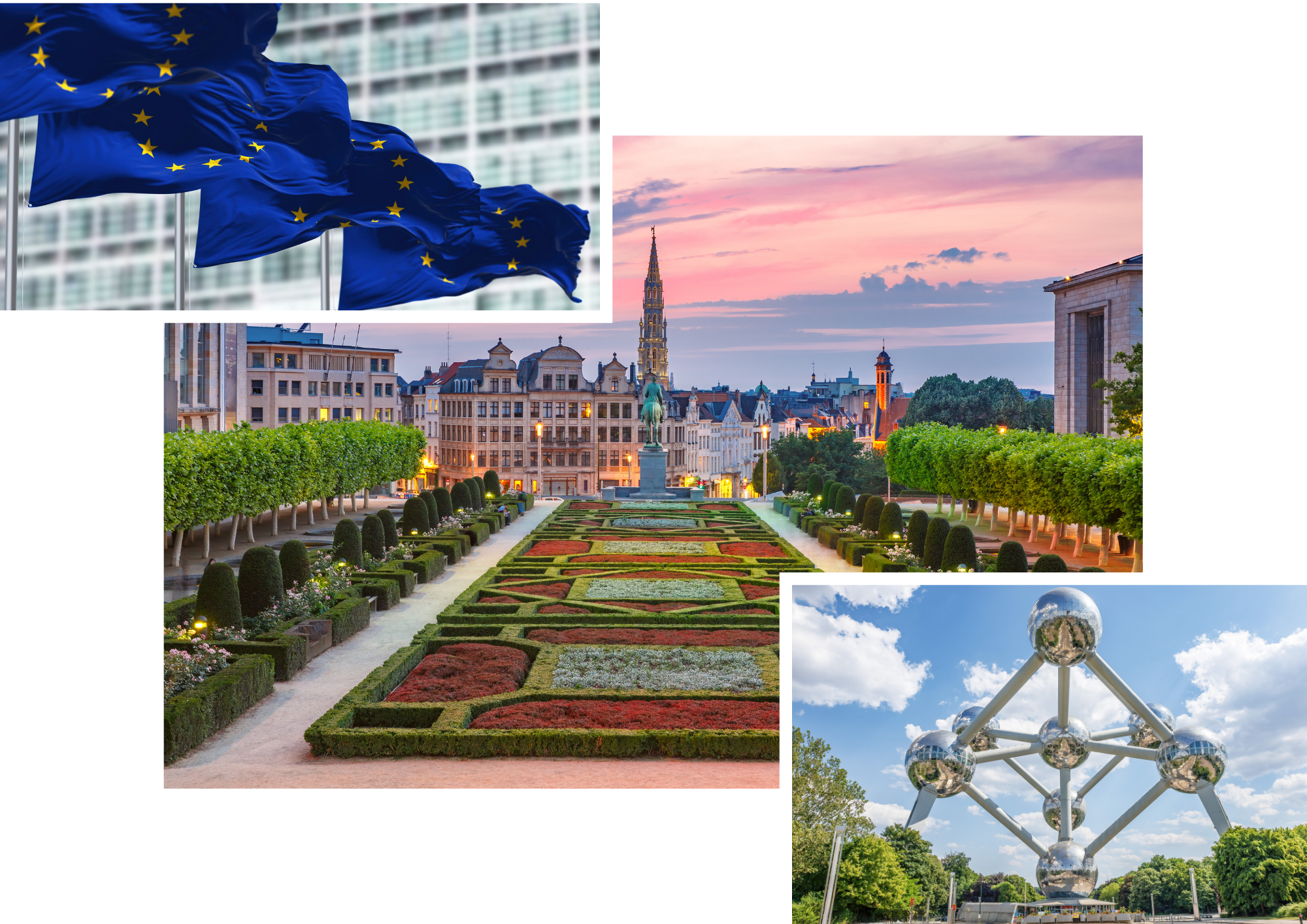
On October 27, 2023, KT4D held the first session on the Brussels Use Case.
The discussion delved into the democratic governance of AI within the European context. In a landscape evolving rapidly with advanced tools like GPT-4, the imperative to address challenges such as power centralization, lack of transparency, and the dynamic nature of technological changes becomes increasingly evident, all of which pose potential threats to the democratic fabric of our society.
This session aimed to explore some key aspects such as Potential Pitfalls and Gaps in Europe's AI Regulatory Framework; Evaluation of the AI Act's Approach; Scope for Restrictions on Expansive AI Models. By participating in these discussions, stakeholders had the opportunity to deepen their understanding of the current AI regulatory landscape in the European Union and contribute to shaping the future discourse on AI regulation.
As part of KT4D's broader initiative, the session underscored the commitment to exploring new solutions that can safeguard democracy and civic participation in the face of rapid technological advancements. This roundtable marked one of three scheduled events in Brussels, serving as a collaborative platform for policymakers, think tanks and civil society organizations to formulate a resilient framework for democratic AI governance.
The insights generated from this event are expected to play a significant role in guiding KT4D's efforts to bridge the gap between society and technology, ensuring that democratic values remain a cornerstone in the development and deployment of AI systems in Europe.
Madrid Use Case
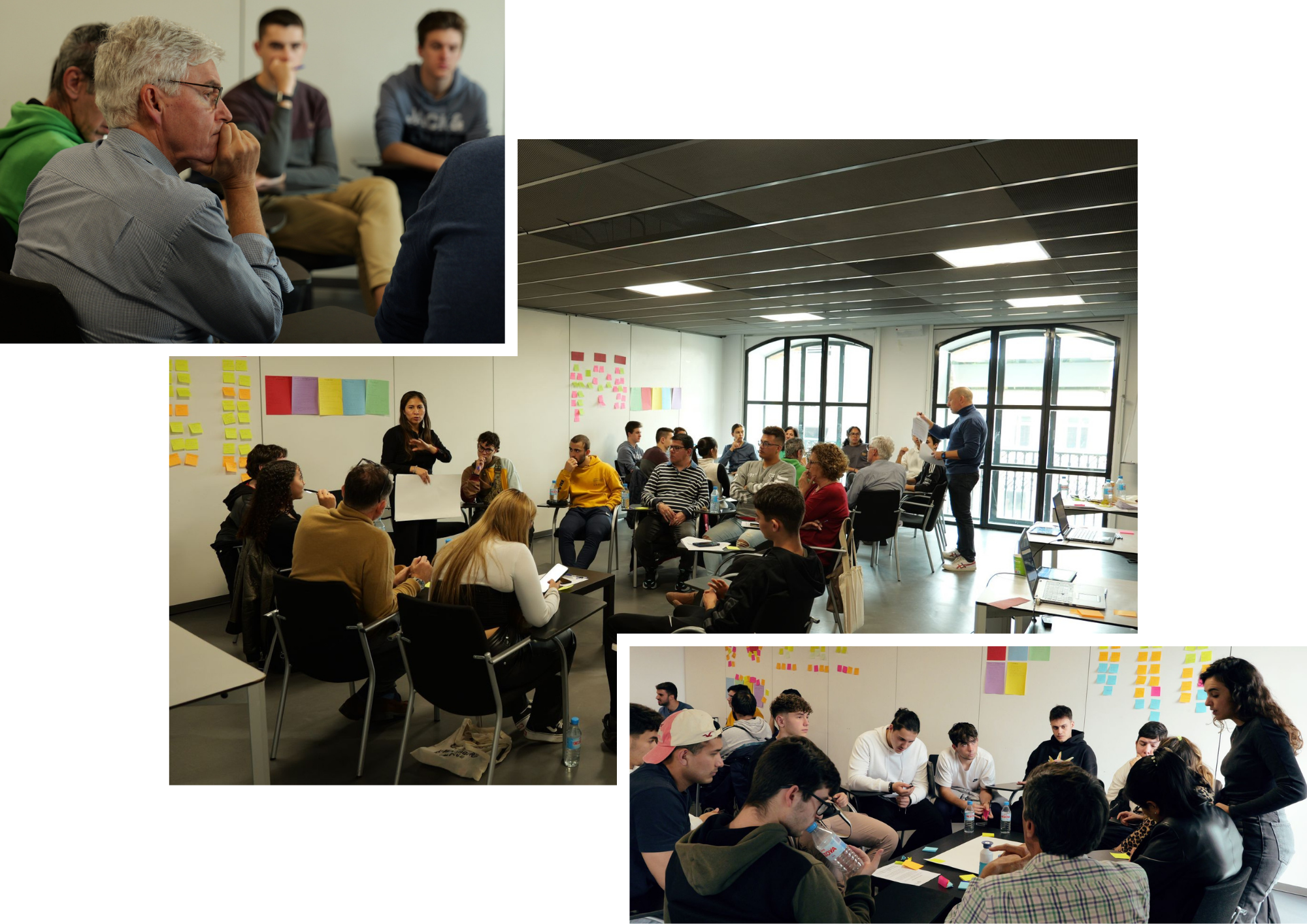
On October 31, 2023, Fundación Cibervoluntarios, held the Madrid Use Case study.
The KT4D event, themed "co-creating digital democracy," gathered together 40 participants. The majority were young students hailing from various vocational training schools, alongside contributors from local associations.
Commencing with the workshop's initial segment, a focus group was conducted to delve into participants' attitudes and opinions regarding AI and big data. Subsequently, they undertook a validation process for existing educational materials and games associated with the subject. This evaluation encompassed considerations of format, content, user experience (UX), and user interface (UI). The validation exercise served to provide participants with a comprehensive understanding of their preferences for similar materials.
The concluding phase of the event centered on co-creation, where participants were tasked with developing prototypes for AI-related games and educational materials. Their contributions were marked by genuinely intriguing and creative ideas, setting the groundwork for the future development of these resources.
KT4D once again gained enormous feedback on the relationships between technology and democracy. The results coming from the Madrid Use have contributed to building a path towards a more participative civil society.